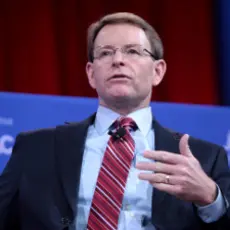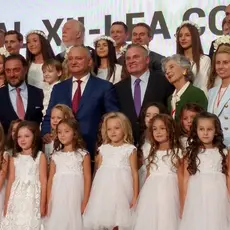Yesterday on “ Ctrl+Click or tap to follow the link">Washington Watch,” Family Research Council officials Tony Perkins and Peter Sprigg chatted about the World Congress of Families, the international gathering of social conservative activists taking place this week in Salt Lake City, which Sprigg will be attending.
The two were upset that LGBT advocacy groups have criticized the World Congress of Families, with Perkins insisting that criticism of the event amounts to an attempt to “silence” conservative Christians and Sprigg laughably asserting that “the vast majority” of the discussions at the Utah conference “really don’t have anything to do with homosexuality.”
This is a tad ironic, since the World Congress of Families actually backed a Russian law censoring pro-LGBT speech.
The group, an offshoot of the Howard Center for Family, Religion and Society, signed on to a statement [PDF] defending the notorious speech law, which bans “propaganda of non-traditional sexual relationships” to minors and has been used to criminalize speech in favor of LGBT rights:
We acknowledge that the Russian law protects the innocence of children and the basic rights of their parents recognized in the international legislation and treaties. With its new law Russia is protecting genuine and universally recognized human rights against artificial and fabricated "values" aggressively imposed in many modern societies. We also note that the concepts of “sexual orientation” and “gender identity” are not outlined in the existing binding international treaties and agreements.
We thus call for respect of the sovereignty of the Russian people and we invite all organizations and people who feel responsible for the protection of the innocence of children and their rights, the natural family and parental rights to stand up for Russia, as well as for Ukraine and Moldova suffering the same pressure due to similar laws.
World Congress of Families spokesman Larry Jacobs hailed the law as a “great idea,” and Alexey Komov, the organization’s representative in Russia, similarly boasted that “a huge number of people and human rights organizations around the world are supporting Russia in an effort to protect their children and their family values from aggressive immoral propaganda.”
So while Sprigg and Perkins are attacking groups for merely criticizing the World Congress of Families, it is the World Congress of Families that has actually supported efforts to censor speech.







